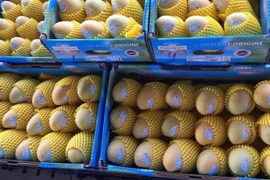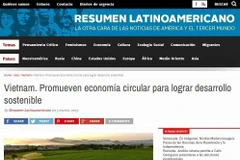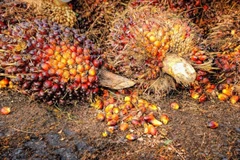Phnom Penh (VNA) - Cambodia’sagriculture sector is unlikely to be able to substantially absorb laid-offworkers from the garment and tourism industries, according to a World Bankreport.
In a report titled, “Economic Update for Cambodiain the time of COVID-19,” it notes the weak performance of the farming sector.
The bank saysrecent efforts to modernise the agriculture sector have intensified as Cambodiaendeavours to increase productivity within its major crops.
In thisregard, there are signs that the sector is slowly modernising by leveragingadvanced cultivation techniques and new seeds made possible by technologydiffusion via foreign direct investment, it said, adding that while it is stilltoo early to draw conclusions, Cambodia’s exported agricultural products haveslowly expanded to include new products such bananas and soon mangoes.
MengSakphouseth, country programme officer to Cambodia for the International Fundfor Agricultural Development (IFAD), said that the agriculture is the sectorthat can most easily temporarily absorb seasonal workers.
However,farming is not the first choice for many young Cambodians because they preferto work in industry or the tourism sector.
IFAD said itis working with the Cambodian government to leverage a programmatic approach toease the economic distress and prevent food security stresses caused by theCOVID-19 pandemic.
Thecollaboration is focusing on addressing the immediate economic needs of ruralcommunities by creating opportunities for returning migrant agriculturalworkers and expanding prospects for smallholder farmers through enhancedproduction support.
The globalCOVID-19 outbreak has severely affected the services sector, especially thehospitality and tourism industry, which provides 620,000 jobs and hundreds ofthousands of garment workers.
According tothe World Bank, at least 1.76 million jobs are currently at risk because of theCOVID-19 outbreak. The collapse of the growth drivers has not only hurteconomic growth but has also caused unemployment to soar to nearly 20 percent./.





























